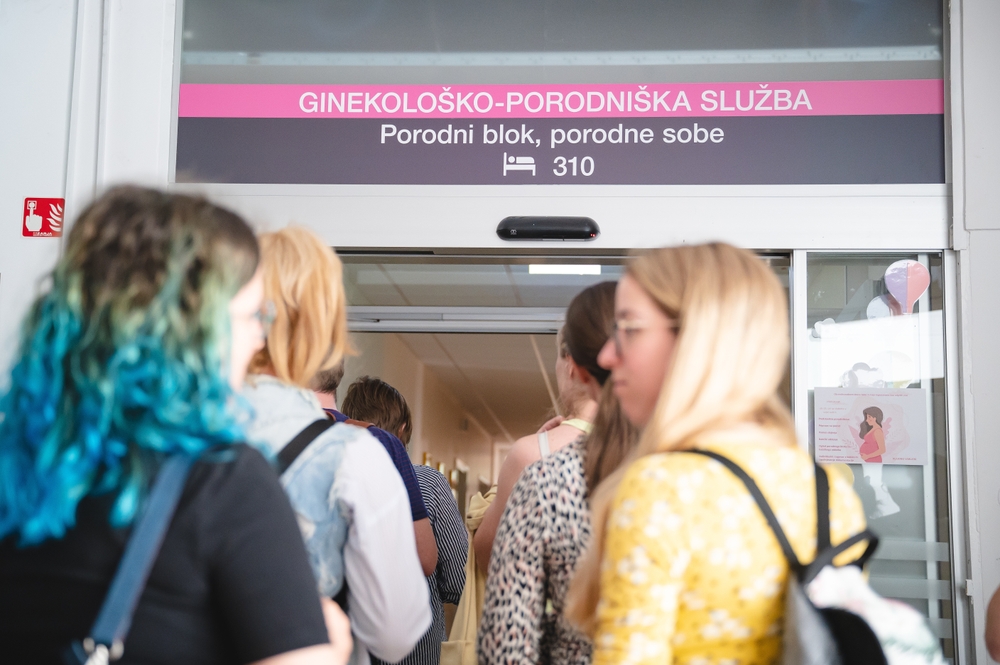Slovenia, Ospedale generale di Jesenice © Nik Bertoncelj/Shutterstock
Once a real excellence, Slovenian healthcare today is not without its problems. One of the main ones is the presence of two parallel systems, public and private, which increase inequality between citizens. Meanwhile, Prime Minister Golob has just fired the health minister
He leaves after a year spent amidst a thousand promises, announcements of amazing reforms and a ton of money spent. Health Minister Danijel Bešič Loredan was the man who – according to Prime Minister Robert Golob – should have solved all Slovenian health problems. He had jumped on the bandwagon of Movimento Libertà, after his voice had been raised several times over the years to criticize the functioning of the system. To him the difficult task of redesigning it. Witnessing the fact that his project was blindly trusted was also the ephemeral post of deputy prime minister, which made him one of the symbolic men of the party.
Finally, Golob called him to his office and presented him with a pre-filled sheet of his resignation. Bešič Loredan just signed it and walked away. A scene worthy of House of Card or of Game of Thrones, given that until a few hours before the members of Movimento Libertà had competed to sing praises towards him. Thus the party had reacted to the no-confidence motion promoted against the minister by Janez Janša’s Democrats. To many, that move by the opposition had seemed like a real favor towards Danijel Bešič Loredan and his shaky chair, a way to force the majority to keep him there despite himself.
Danijel Bešič Loredan (photo wikimedia CC)
Thus another piece of the Golob government falls. Another man who had to play an important role in the improvised political project of Movimento Libertà. The first to raise the white flag was the interior minister, Tatjana Bobnar, guilty of wanting to defend the police from the interference of the prime minister and his men. The affair has some common features, including that of the no-confidence motion. At the time the minister, before having her resign, had been defended to the sword in parliament by her majority. This time, at least the drama, she was spared the country.
Now the interim has passed to Robert Golob. There don’t seem to be crowds of aspiring ministers on the horizon and probably the prime minister and the government will have a hard time finding someone willing to occupy the uncomfortable seat.
However, the problems remain. The only issue partially resolved in a year of government was that of supplementary health insurance: a voluntary contribution that citizens paid to private insurance companies to have absolute coverage of health services, thus avoiding having to pay the co-payment. Over the years, millions of euros have entered their coffers and golden deals have been made at the time of Covid, where with the whole medical sector concentrated on solving the emergency there has been a significant reduction in ordinary visits and therefore also in the costs borne by the insurance companies.
After the period of fat cows, the insurance companies wanted to increase the premiums: at that point the government first froze them and then established that the citizens would pay the premium directly into the state coffers. The solution made the Left (radical) turn up their noses above all. The smallest governing party would have preferred progressive taxation. The fact is that taking into account the tax relief, in the end those with lower incomes will pay more (sic!).
In a country where equality is still considered an absolute value, health care is one of the major problems. Free medical assistance has always been considered one of the flagships of the republic. Even at the time of Yugoslavia, Slovenia was an excellence. It is no coincidence that Marshal Tito came to fight his “last great battle” (as the rhetoric of the time said) right at the clinical center of Ljubljana, where he died in May 1980.
After independence, the system didn’t suffer too many setbacks and didn’t even bend to the logic of the free market. In front of the health personnel, all citizens were equal or at least almost equal. Then things began to change. Doctors, especially the most esteemed specialists, began to ask for better compensation and also the possibility of being able to operate in private in their spare time. Soon they were mockingly defined as “amphibians”: figures able to enjoy the privileges of being included in a public system, but also to operate in the private sector by collecting large fees, often opening a practice in their own hospital and using the machinery of the health facility. A long-term process that has slowly led, almost without citizens realizing it, to the creation of two parallel systems: one public and the other private.
At this point there are two ways: to institutionalize the existing reality or to definitively separate public and private. Most of the doctors seem to lean towards the first solution and Danijel Bešič Loredan seemed to want to take this path. Golob also motivated the defenestration of his minister by saying that he wanted to maintain public health; but the government, a year after taking office, does not seem to have a clear plan on how to resolve the issue and, to tell the truth, not even on how to tackle the country’s other problems.
Meanwhile, many citizens continue to be without a general practitioner and waiting times for specialist visits do not decrease. In summary, those who have the money or have good private insurance immediately get an ultrasound or an MRI, while those who can’t afford it wait patiently for their turn to come.
Have you thought about a subscription to OBC Transeuropa? You will support our work and receive preview articles and more content. Subscribe to OBCT!
Comments, as far as possible, are screened by our staff before being made public. The time required for this operation can vary. Go to our policy
